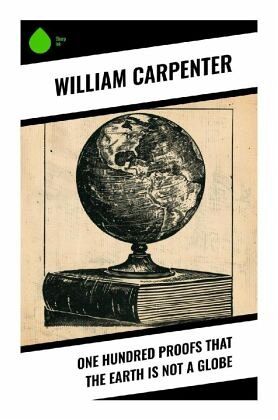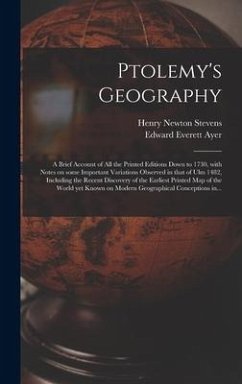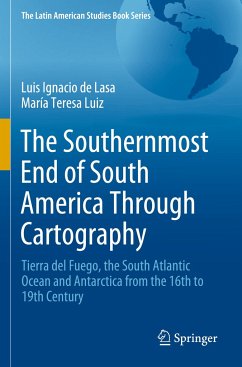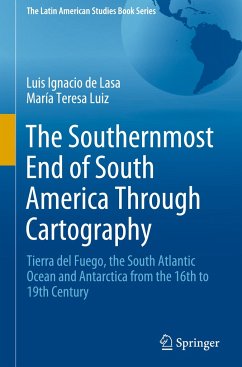
One Hundred Proofs That the Earth Is Not a Globe
Versandkostenfrei!
Versandfertig in 6-10 Tagen
7,70 €
inkl. MwSt.

PAYBACK Punkte
0 °P sammeln!
In "One Hundred Proofs That the Earth Is Not a Globe," William Carpenter presents a provocative compilation of arguments that challenge the established view of a spherical Earth. Employing a discursive yet accessible literary style, Carpenter deftly structures his work into a series of proofs that range from claims about physical observations to interpretations of scientific principles. This book, published during the 19th century when the scientific consensus increasingly favored a globe-shaped Earth, emerges as a significant artifact within the context of anti-establishment discourse and the...
In "One Hundred Proofs That the Earth Is Not a Globe," William Carpenter presents a provocative compilation of arguments that challenge the established view of a spherical Earth. Employing a discursive yet accessible literary style, Carpenter deftly structures his work into a series of proofs that range from claims about physical observations to interpretations of scientific principles. This book, published during the 19th century when the scientific consensus increasingly favored a globe-shaped Earth, emerges as a significant artifact within the context of anti-establishment discourse and the rise of pseudoscientific thinking. Carpenter's fervent rhetoric and reliance on practical reasoning invite readers to question the prevailing narratives of his time, reflecting a broader skepticism that characterized the age of enlightenment and early modern science. William Carpenter was a prominent figure in the anti-Globe movement, drawing on his background in various disciplines, which likely influenced his views on cosmology. His extensive research and investigations were fueled by an unwavering belief in empirical evidence over traditional scientific dogma. Carpenter's commitment to his cause was rooted in the desire to challenge mainstream science and propose an alternative understanding of the universe, reflecting the fervent debates of his era surrounding education, science, and belief. This book is an invaluable resource for readers interested in the history of scientific thought and the challenges posed to orthodox beliefs. Carpenter's unique perspective not only provides insight into 19th-century intellectual history but also serves as a cautionary tale about the nature of evidence and belief systems. I recommend this work to anyone seeking to explore the complexities of science, perception, and the enduring human tendency to question received wisdom.







![The Complete Works of Mark Twain [pseud.] The Man That Corrupted Hadleyburg Vol. 15; FFITEEN (15) Cover The Complete Works of Mark Twain [pseud.] The Man That Corrupted Hadleyburg Vol. 15; FFITEEN (15)](https://bilder.buecher.de/produkte/65/65541/65541094n.jpg)



![Circumnavigation of the Globe and Progress of Discovery in the Pacific Ocean [microform] Cover Circumnavigation of the Globe and Progress of Discovery in the Pacific Ocean [microform]](https://bilder.buecher.de/produkte/65/65619/65619285n.jpg)
